“a beautiful, difficult love story; Roxanne’s encounter with the French language”
- goes the blurb from the magazine Elle on the back of the book. Well. The story of Djavann’s refugee Roxanne living in her attic chambre de bonne or Parisian boxroom and passionately obsessing with mastering the French language at a level byond any ordinary French citizen touches more complicated depths than the sentimentality of this line would have you believe. But then maybe reviewers are often paid to spare readers’ consciences if a book is to sell.. In the end I have to say that the book plunged me into that mix of idealism and despair I dreaded from the book’s title and the writer’s origins. However, the portrayal of Roxanne's first years in Paris is so precise and courageous that the reading experience is inimitable. As the title offputtingly suggests, the text is somewhat a tract as well as a novel. The middle section of the book is a series of letters addressed to Montesquieu, a sort of echo of les Lettres Persanes, and compares lay European and theocratic muslim society. This argumentative part of the book is touching and brilliant in its literary references and use of language, though I resisted having to read through all the arguments in favour of a lay society already outlined in ‘Bas les Voiles!’ The tactic of waging war against religious fanatics on the issue has always seemed to me to turn ourselves a grotesque mirror image of the religious fanatics who impose their will on women, ‘take it off!” = “put it on!” (I have in mind here a series of 'magnum' photos of Algerian women forced to unveil for identity shots during the war of independence and the expression in their faces is one of unforgettable humiliation. Particularly one woman in her sixties with long grey hair you can tell from the look in her eyes forced to gaze in the direction of the camera that she's maybe never ever in her life gone unveiled in public with strangers. My own ideal is mutual tolerance of difference. Woolly-sounding words meaning it would be good to be able to go about here, there, everywhere, as we are, bareheaded or covered head to foot if that’s the way we need to be for the minute.... Let’s live as we are without disguise with real affection for the other’s way of being /looking. It was good to find out that Djavann’s fictional narrative takes a more fluid position than the angry revindications of ‘Bas les voiles!' Roxanne works for a journalist who decides - to her incomprehension - to accompany her Tehranian husband to Iran and wear the veil ‘to try out a medieval lifestyle and understand better how the world works.’ The character is a journalist who intends to send back reports to French newspapers on different aspects of Iranian society – maybe it could be argued that she is a personality who takes her identity and confidence from some freedom outside signs of frontiers – and why not?
Sunday, February 1
Subscribe to:
Post Comments (Atom)





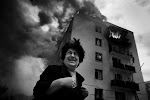

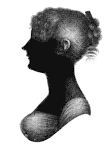

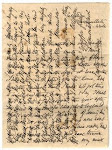
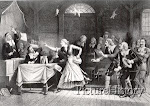
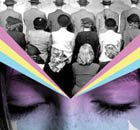
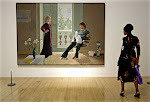

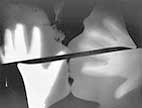











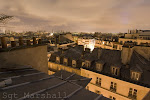




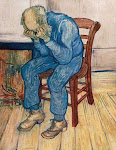



















No comments:
Post a Comment